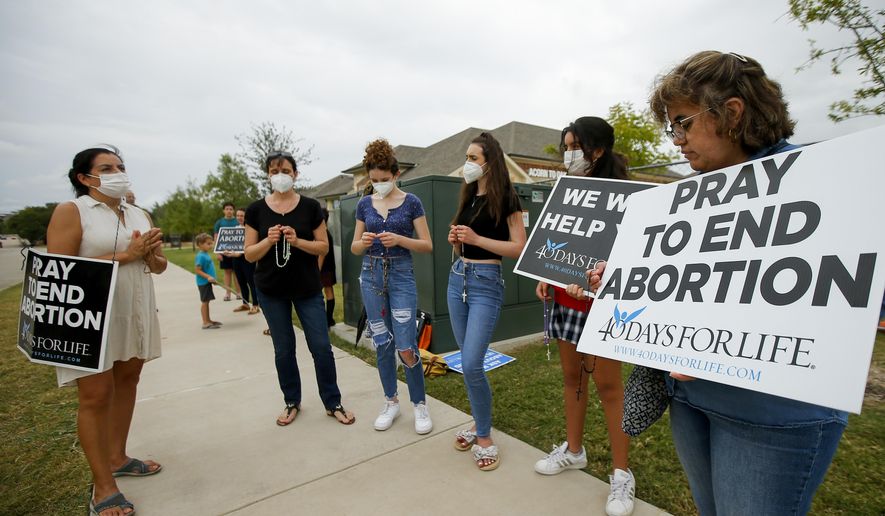The Biden Justice Department wants a federal appeals court to reinstate a lower court’s order blocking Texas’ ban on abortion after a fetal heartbeat is detected.
In a court filing Monday, the Justice Department told the U.S. Court of Appeals for the 5th Circuit that Texas’ ban is unlawfully designed to thwart judicial review by appointing private citizens to enforce it — rather than the state — and by attempting to make post-enforcement review ineffective.
“By both defying the Constitution and frustrating judicial review, Texas has not merely protracted its assault on the rights of its citizens; it has repudiated its obligations under our national compact in a manner that directly implicates sovereign interests of the United States,” the 25-page brief states.
It comes after the New Orleans-based appellate court over the weekend granted Texas’ request to pause an Oct. 6 order by U.S. District Judge Robert Pitman temporarily blocking the abortion ban.
Judge Pitman, an Obama appointee, had sided with the federal government, which argued the law runs afoul of Supreme Court precedents establishing a national right to an abortion.
The three-judge panel who will review the dispute between Texas and the federal government includes Judges James Ho, a Trump appointee; Catharina Haynes, a Bush appointee; and Carl Stewart, a Clinton appointee.
The Texas law, known as Senate Bill 8, bans abortion if a fetal heartbeat is detected, which is typically around six to eight weeks of pregnancy.
The Justice Department argues that Supreme Court precedent dating back decades gives women a right to an abortion up until a fetus is viable, which is usually around 24 to 28 weeks.
The law took effect Sept. 1, and the Supreme Court ruled the following day to leave it in place while litigation against it continues.
Since then, the Justice Department has claimed that “some Texans with sufficient means have traveled hundreds of miles to obtain abortions elsewhere overwhelming providers and creating backlogs for care in other states.”
Under the law, state officials don’t enforce the abortion ban, but private citizens can sue anyone who either performs an abortion or helps a woman receive an abortion after a fetal heartbeat is detected.
SB 8 also states that if a judge temporarily blocks the law, providers can still be subject to lawsuits over violations that happen before a permanent ruling is made.
Texas says the ban does not frustrate judicial review because defendants can argue that the law is unconstitutional in enforcement proceedings.
The Justice Department, however, claims that constitutional defenses will be infrequent because the law “has so thoroughly chilled providers that very few enforcement proceedings will likely be brought.”
The department also said that defenses will likely be ineffective because the law purports to restrict the consequences of a successful constitutional argument.
“That is a mirage of judicial review,” the department said.
The Justice Department argues that Texas is defending its law by invoking state sovereignty, but that immunity does not shield the state from the federal government’s authority to sue states over unconstitutional laws.
Texas’ effort to avoid judicial review “is an open threat to the supremacy of the federal Constitution” and if the “scheme is permissible, no constitutional right is safe from state-sanctioned sabotage of this kind,” the department said.
The Justice Department urged the court to reinstate the order temporarily blocking the ban and to deny any other motions to keep the law in place while litigation continues.
“Because SB 8’s unconstitutionality is obvious, and because Texas’s sovereign immunity poses no barrier to this suit, Texas is unlikely to succeed on the merits,” the department said. “Moreover, Texas will suffer no cognizable harm if the enforcement of its unconstitutional statute is enjoined during the pendency of this appeal; indeed, if Texas is to be believed, the state has no responsibility for the law at all.”
Texas has until noon Thursday to respond to the Justice Department’s brief.
• Alex Swoyer can be reached at aswoyer@washingtontimes.com.
• Emily Zantow can be reached at ezantow@washingtontimes.com.




Please read our comment policy before commenting.